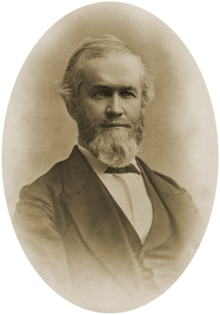John Brown Baldwin | |
|---|---|
 Baldwin (c. 1860s–1870s) | |
| Member of the Virginia House of Delegates from Augusta County, Virginia | |
| In office December 1, 1845 – December 6, 1846 Serving with Nathaniel Massie | |
| Preceded by | John G. Fulton |
| Succeeded by | Hugh W. Sheffey |
| Member of the Confederate House of Representatives from Virginia | |
| In office February 1862 – March, 1865 | |
| Member of the Virginia House of Delegates from Augusta County, Virginia | |
| In office December 4, 1865 – October 4, 1869 | |
| Preceded by | Hugh W. Sheffey |
| Succeeded by | H.M. Bell |
| Speaker of the Virginia House of Delegates from Staunton, Virginia | |
| In office December 4, 1865 – 1869 | |
| Preceded by | Hugh W. Sheffey |
| Succeeded by | Zephaniah Turner Jr. |
| Personal details | |
| Born | 11 January 1820 Staunton, Virginia |
| Died | 30 September 1873 (aged 53) Staunton, Virginia |
| Resting place | Thornrose Cemetery, Staunton, Virginia |
| Nationality | American |
| Political party | Democratic |
| Other political affiliations | Conservative Party of Virginia |
| Spouse | Susan Madison Peyton |
| Parent |
|
| Residence | Richmond, Virginia |
| Education | Staunton Academy |
| Alma mater | University of Virginia |
| Known for | Unionist, Delegate to Virginia's Secession Convention |
John Brown Baldwin (January 11, 1820 – September 30, 1873) was a Virginia lawyer and Democratic politician, who served one term in Virginia House of Delegates before the Virginia Secession Convention of 1861, during which he was a Unionist. During the American Civil War, Baldwin believed his primary loyalty was to his state, and served as one of Virginia's representatives to the First and Second Confederate Congresses. He became one of the leading critics of President Jefferson Davis, who was seen by many as usurping the Confederacy's states' rights principles. During Congressional Reconstruction, Baldwin became Speaker of the Virginia House of Delegates.[1][2]
- ^ "Baldwin, John Brown (1820–1873) – Encyclopedia Virginia".
- ^ Cynthia Miller Leonard, Virginia's General Assembly 1619-1978 (Richmond: Virginia State Library 1978) pp. xv, xxx, 416, 474, 500